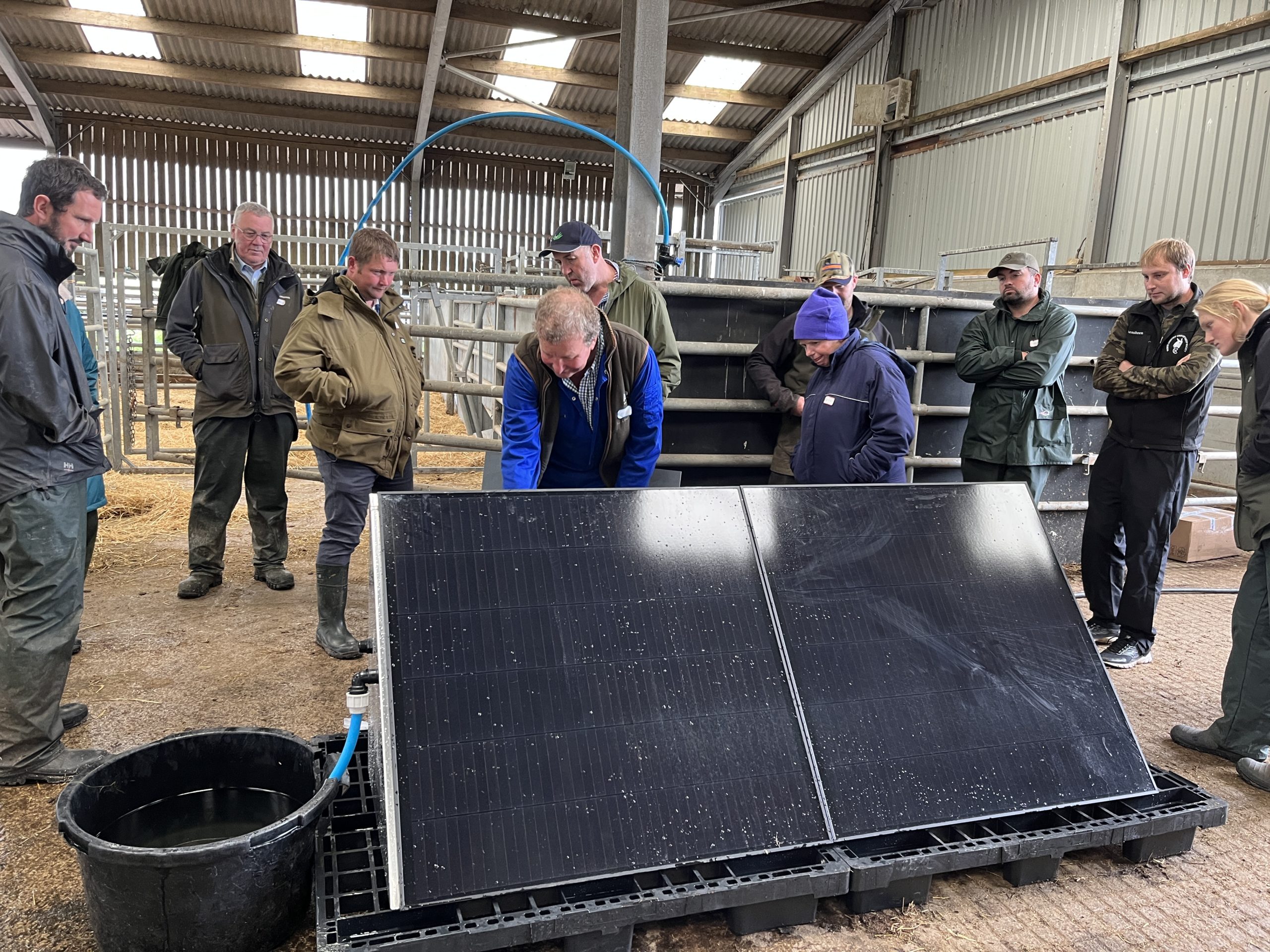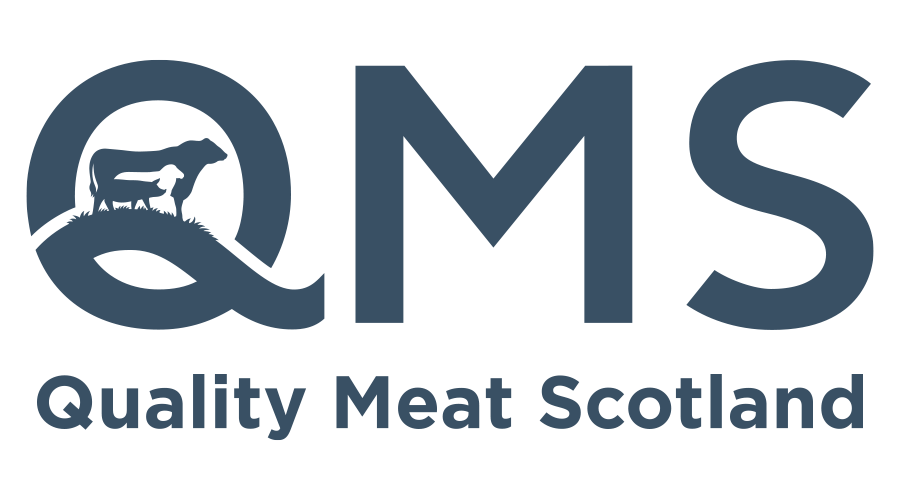Stock health plans, managing ewes for a successful 2024 lambing, soils, rotational grazing and water shortages were key points discussed at an information-packed Dumfriesshire Monitor Farm summer meeting.
More than 80 visitors heard how Monitor Farmer Richard McCornick and the family at Barnbackle near Lochfoot had been progressing. The 500-acre beef and sheep farm is run by Richard and his partner Hayley, alongside Richard’s parents, Andrew and Janice. Richard’s brother Craig and his wife Michelle also farm, and the two brothers help each other as and when needed.
The family runs 150 spring- and autumn-calving Sim-Luing suckler cows, 20 store cattle, and 700 Texel x Mule ewes at Barnbackle. Most calves are sold as sucklers with only a small number kept through winter, and lambs are sold off grass. Some of the cattle are out-wintered on kale, as are the sheep who also have access to swedes. Richard also runs a small herd of pedigree Charolais cattle, and recently won the breed championship at the Royal Highland Show.
Talking to visitors, he said much of the Monitor Farm progress had been ‘been behind the scenes’. Soil Essentials had undertaken whole farm soil mapping; this had given positive results, which were used to vary the rate of lime spread across the farm, making a big saving. In addition, Christine Beaton from SAC had analysed the business, producing an Integrated Land Management Plan (ILMP). As a result of the ILMP, SAC sheep consultant Poppy Frater had produced a specialist plan on the sheep enterprise, focusing on improving lambing losses, while her colleague Robert Ramsay will be doing one on cattle nutrition.
At the meeting, the farm’s vets, Bruce and Ali Haggerty from Stewartry Veterinary Centre, explained that they had also prioritised some points in the farm’s health plan because the business had specific targets it wanted to achieve.
“Pushing for health status to improve your business and farm is an excellent thing to do, but we have to take into consideration the individual farm circumstance and look at what you need to do, then target it to you with advice from your vet and peers.”
Speaking at the meeting, Ms Frater said that one of the key points in her plan was managing ewes to achieve body condition score (BCS) targets at mating, which will increase lambs reared in 2024. She advised aiming for hill ewes to be at BCS 2.5 at tupping, while upland/lowland ewes should be at 3-3.5.
She also spoke about the importance of managing soils to ensure good grass growth, including assessing farm soils by digging a pit, and reducing the risk of soil structure issues by resting pasture to promote root growth, considering deep rooting species and adapting grazing during wet weather to reduce poaching or localised damage.
Rotational grazing would offer at least a 20% increase in grass growth and stocking rates, said meeting speaker, grazing specialist Rhidian Jones. For anyone considering it, he said it was important to initially decide whether it is something you are going to be able to commit to and what classes of livestock it will work better for. “It might be better for dry stock in winter or weaned lambs, it all depends on the farm and the goal.”
Deciding on group sizes decides the size of paddocks and how much equipment is required, he said. “Then work out the budget for the group of animals in terms of what the dry matter requirements are and how often you need to shift them from field to field.”
He added that listening to someone talk about rotational grazing is ‘like the bronze standard, going to see someone else doing it is silver standard, and doing it yourself is the gold standard in terms of learning’. “Until you start doing it yourself and get your eye in to grass length it’s difficult to learn from someone else.”
While the meeting was held on a day of pouring rain, the farm had faced a severe lack of water until after the Highland Show, explained Richard. “The farm was burning up and our water source had almost run dry.”
Through the Monitor Farm programme, he had been able to get Peter Thorpe from Ardo Water Solutions in Aberdeenshire to build a solar powered water pump. This can pump water from the farm’s pond to multiple troughs. “It has the capability to pump to a head of 100m and to a distance of over 2km. This has been a game changer for us, and the pressure and flow it produces is very impressive.”
Monitor Farm regional adviser Maura Wilson added: “We had a great turnout to discuss soils, sheep, grazing, diseases and water. It was brilliant to have support from RSABI at the event, and sponsorship from Tarff Valley and Watsons Seeds. We would welcome anyone to sign up for updates, and to come along to our next meetings.”
Barnbackle is one of nine Monitor Farms across Scotland taking part in the programme run by Quality Meat Scotland and AHDB, and funded by Scottish Government. This aims to help to farms reach full economic, social, and environmental sustainability by optimising production. Over the next four years, other farmers and experts will be brought together to help the family assess farm performance, explore opportunities, and develop solutions to their challenges.
For more details on future meetings, see www.monitorfarms.co.uk or contact regional advisor Maura Wilson at mwilson@qmscotland.co.uk or email monitorfarm@qmscotland.co.uk

